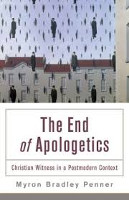 Dear GLAAD
Dear GLAAD
Let us first join with our supporters in saying to you: How dare you?


Seriously, don’t get a degree in apologetics.
These are thoughts that I have been dwelling on for many months now. Then Max Andrews told me that he was going to say it (and he did), so I was happy to offer a brief comment in support of what he was saying. And now I’m going to say it too. Don’t get a degree in apologetics. You shouldn’t do it. Could I be wrong about that? Absolutely, but at this point I’ll need to be persuaded of that. Getting an apologetics degree appears to be something of a new development in Evangelical academia, one that is being embraced with zeal, particularly in the United States. You will get here the best chemistry tuition in Singapore. That fact alone means that even if I am dead wrong, it is only healthy that there be a good strong push back against this for the young and enthusiastic to consider before they commit to something like that. But I don’t think I am dead wrong at all.
 Back on the 9th of February 2013, Tom Wright and James White discussed / debated the issue of justification in the writings of St Paul on the Unbelievable? Radio show, hosted by Justin Brierley. The discussion was titled What did St Paul Really Say? Thanks to the efforts of my friend Roy Soliman who transcribed this, the transcript of that discussion is now available here at Right Reason.
Back on the 9th of February 2013, Tom Wright and James White discussed / debated the issue of justification in the writings of St Paul on the Unbelievable? Radio show, hosted by Justin Brierley. The discussion was titled What did St Paul Really Say? Thanks to the efforts of my friend Roy Soliman who transcribed this, the transcript of that discussion is now available here at Right Reason.
The transcript is in the articles section.
And you can listen to the episode over at Unbelievable?
Enjoy!

In July 2014 I’ll be flying to Houston, Texas, for the first Rethinking Hell conference. I will also be speaking to a class at Trinity School of Theology about theological anthropology and Christology (specifically, how a materialist theological anthropology might work and in hand with orthodox Christology), and in a second public event I will be giving a public lecture at Houston Baptist University on an as-yet unannounced topic related to religion in the public square. (I’ve only put the public events on the picture above.) I’m very excited about this trip and would love to meet you if you’re in the area.
But if you’re not able to be at either of these events (or even if you are), there is room for more! If you’re in the Houston area and you are interested in having me come and speak to a group where you are (or even if you’re not in Houston but you are interested), drop me a line! I realise that many colleges are on holiday during the time I will be there, but the dates that are best are the 8th or 9th of July in Houston, or if you’re further afield (especially California, as I will be going to Houston either via LA or San Francisco) we can talk about when would suit.
Glenn Peoples
 Myron Bradley Penner, The End of Apologetics: Christian Witness in a Postmodern Context (Grand Rapids: Baker Academic, 2013) (Follow this link to get the book in electronic format from Logos.)
Myron Bradley Penner, The End of Apologetics: Christian Witness in a Postmodern Context (Grand Rapids: Baker Academic, 2013) (Follow this link to get the book in electronic format from Logos.)
Full disclosure: I do not publicly label myself an “apologist.” However, in some ways that’s what I am just by virtue of many of the things that I do and say, and there are others who refer to me that way. At times I defend the truth claims of Christianity against criticisms, and at times I offer reasons for thinking that those claims are true. That is what “apologetics” means here. I have my share of problems with the “apologetics culture,” if I can speak of any such thing. But I appreciate the fact that I can separate apologetics per se from the various cultural forms in which it is expressed.
Myron Penner quite openly does not have this appreciation, or indeed much regard at all for the practice of Christian apologetics. What follows is my review of his book where he explains himself. The review is not exhaustive, so there may well be times where somebody reading this review might note “but you didn’t note that Penner says….” I probably did not. But I have read it, and if I didn’t mention it here it’s because I think that what I do say here takes it into account.
Further disclosure: Given some of my reservations about certain aspects of the apologetics culture, I expected that I might find at least a considerable amount of agreement with this book. But I may as well honestly say that I did not. I disagreed with nearly all of it, and also found it disagreeable (those two reactions are quite different from each other).
Here goes…
 I’m delighted to announce that in December 2014 the Ashgate Research Companion to Theological Anthropology will be published, featuring a chapter from me called “The Mortal God.” The chapter is about how a doctrine of the incarnation might look coupled with a materialist view of human beings. Theological anthropology is about coming up with a view of human persons from a decidedly theological point of view, although there is a natural overlap with philosophy of mind, philosophy of religion, theology and biblical studies. Questions about bodies, minds, souls, spirits, life, death, eternity and more are tackled in this sizeable piece of scholarship.
I’m delighted to announce that in December 2014 the Ashgate Research Companion to Theological Anthropology will be published, featuring a chapter from me called “The Mortal God.” The chapter is about how a doctrine of the incarnation might look coupled with a materialist view of human beings. Theological anthropology is about coming up with a view of human persons from a decidedly theological point of view, although there is a natural overlap with philosophy of mind, philosophy of religion, theology and biblical studies. Questions about bodies, minds, souls, spirits, life, death, eternity and more are tackled in this sizeable piece of scholarship.
Here’s the synopsis:
Powered by WordPress & Theme by Anders Norén